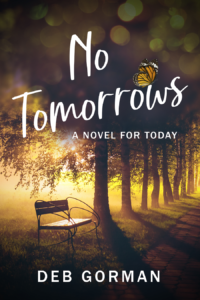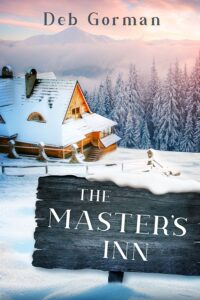
“Time flies over us, but leaves its shadow behind.” – Nathaniel Hawthorne
* * *
As we all know, stories are the recollection of events that happen through time. In January, I posted an article on flashbacks in story-telling. Today, I’d like to go in the other direction with foreshadowing.
* * *
To begin, let’s look at the difference between flash forward and foreshadowing.
A flash forward takes the reader to a point in the future. A good example is Charles Dickens’s A Christmas Carol where Ebenezer Scrooge is taken into the future by a ghost to show him what will happen after his death if he doesn’t change his ways.
* * *
But foreshadowing is different, and despite what Hawthorne said, a shadow may indicate events to come.
According to masterclass.com,
“Foreshadowing is a literary device used to give an indication or hint of what is to come later in the story. Foreshadowing is useful for creating suspense, a feeling of unease, a sense of curiosity, or a mark that things may not be as they seem.”
Foreshadowing may be direct or indirect.
* * *
Direct Foreshadowing overtly states an upcoming event or twist in the story.

For example, the prologue of Shakespeare’s Romeo and Juliet specifically states that the two lovers will die in the story:
“From forth the fatal loins of these two foes
A pair of star-cross’d lovers take their life;
Whose misadventured piteous overthrows
Do with their death bury their parents’ strife.”
Another example of this straight-forward form of foreshadowing is when the author simply makes a statement about the future.
I recently read the novel Tom Lake by Ann Patchett where the first-person narrator recounts to her three daughters the story of her love affair with a famous actor. Late in the book, the narrator explains to the reader that she has told all of her past to her children – well, almost all. “And I am done, except for this: I saw Duke one other time, and of that time I will say nothing to my girls.” So the reader knows that an event which is explained in detail to the reader will not be related to other characters in the book. (Sort of a negative foreshadowing.)
* * *
Indirect Foreshadowing is a more subtle way of hinting at future events or outcomes in the story.

“If you say in the first act that there is a rifle hanging on the wall, in the second or third act it absolutely must go off.” –Anton Chekhov
In To Kill a Mockingbird, Atticus talks to Jem about courage after the death of Mrs. Dubose.
“I wanted you to see what real courage is, instead of getting the idea that courage is a man with a gun in his hand. It’s when you know you’re licked before you begin, but you begin anyway and see it through no matter what.”
That conversation foreshadowed Atticus’s own courage in defending Tom Robinson.
In an early chapter of Tom Lake, the first-person narrator betrays her best friend by stealing the other girl’s boyfriend. That event foreshadows a similar betrayal later in the book when the same thing happens to the protagonist.
* * *
So TKZers: Do you think foreshadowing is a useful device in novel writing? Have you used foreshadowing in your novels? Can you think of any examples in stories you’ve read?
* * *
 Private pilot Cassie Deakin declares her distrust of handsome men in the first paragraph of Lacey’s Star. That statement foreshadows her flawed decisions on trust throughout the book and almost gets her killed.
Private pilot Cassie Deakin declares her distrust of handsome men in the first paragraph of Lacey’s Star. That statement foreshadows her flawed decisions on trust throughout the book and almost gets her killed.
Available at Amazon, Barnes & Noble, Kobo, Google Play, or Apple Books.

















 The title of this post is not a play on words. As I might’ve mentioned
The title of this post is not a play on words. As I might’ve mentioned 